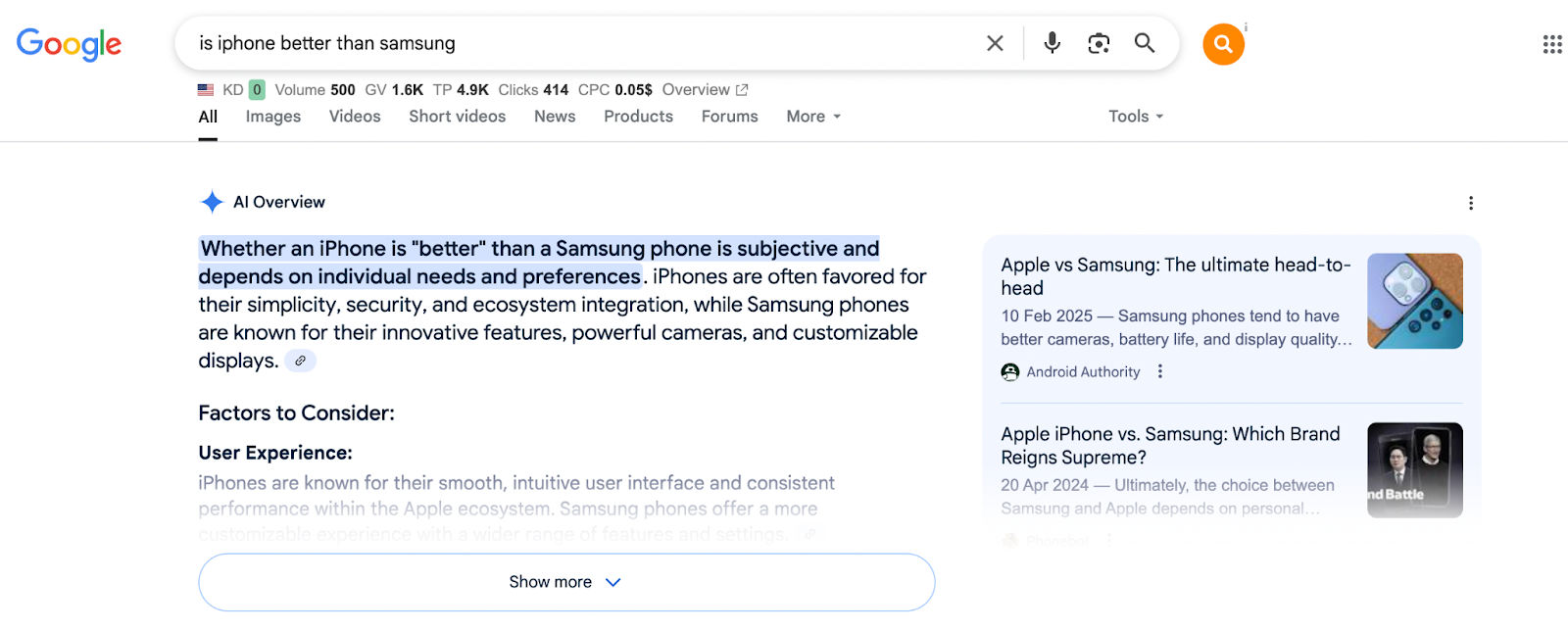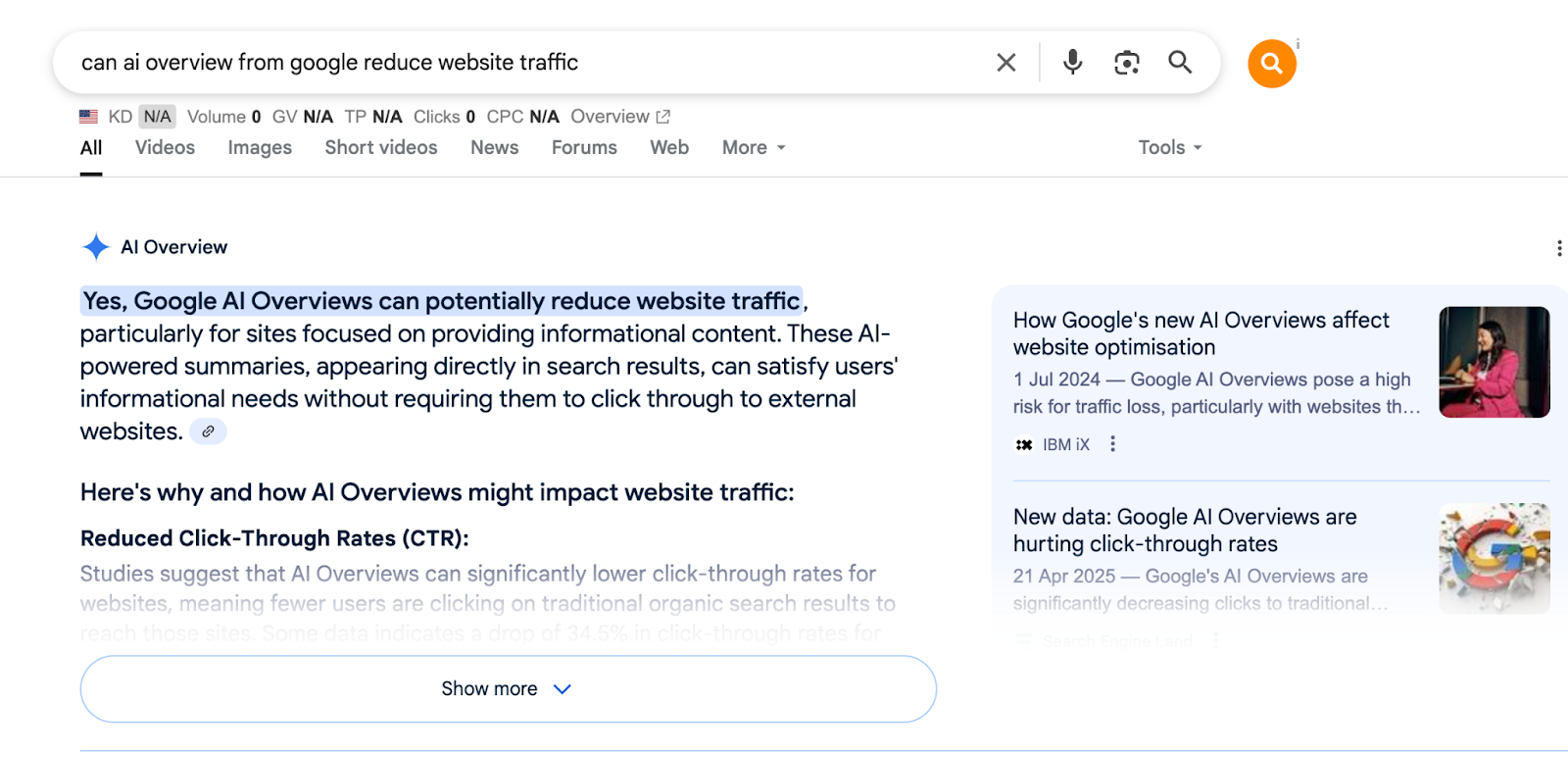Website owners fear Google’s AI search, but is this concern reasonable?
With the fast arrival of artificial intelligence, Google has integrated AI search features directly into the search engine.
This new strategy brought excitement among users, as well as among website owners and publishers. Many of them fear that Google’s new AI-powered search results may diminish traffic to their sites, impact websites’ revenue, and completely change the way people find information online.
But is this threat real? Should publishers worry about this? Let’s understand what Google’s AI Search actually does and if the concerns from website owners are justified.
What Changes with Google AI-Powered Search?
You might not be familiar with the term Google AI-Powered Search, but if you used Google any time in the last couple of weeks, you've probably already seen it: this feature uses generative AI to provide direct answers to users’ search queries at the top of the search results page.
So, when you ask a question like “Is iPhone better than Samsung?”, instead of just showing a bunch of websites listed, Google will actually answer your question directly in a short paragraph or even in a bulleted list, giving you a brief analysis. This, in some cases, might be enough for you to make a decision without even clicking any link.

This is part of the AI Overviews update from Google and has been concerning website managers who aim to drive traffic to their websites and blogs.
Is this the end of the web as we know it? Well, Google disagrees…
Of course, this innovation brings clear benefits for users but raises real concerns for publishers, website owners, bloggers, and businesses who rely on organic search traffic.
Decreased on click-through rates (impacting ads revenue and lead generation) and less control over brand visibility (AI summaries might mention a brand or website but not highlight it) are at the top of the worries list.
Google, however, claims that there's no need for alarm: in a recently published overview, Google claims that:
- AI Overviews include visible source links.
- Early tests suggest people may click on a broader range of websites than with classic search snippets.
- Google is working to ensure that publishers benefit from AI features through clear visibility.
The AI Overview itself, however, doesn't seem to agree:

The long-term impact is still unclear, and not all publishers are convinced. For now, it's important to bear in mind that high-quality content still wins: Google's algorithms rely on credible sources to generate AI summaries. Websites that create trustworthy content may still appear as high-quality sources and benefit indirectly.
While fears of losing clicks and traffic are reasonable, opportunities still exist for sites that focus on trustworthy, engaging, and high-quality content. By staying informed and understanding how you reach your audience, you can work alongside AI, not just endure and survive.
What are your thoughts on AI search? Share in the comments!
